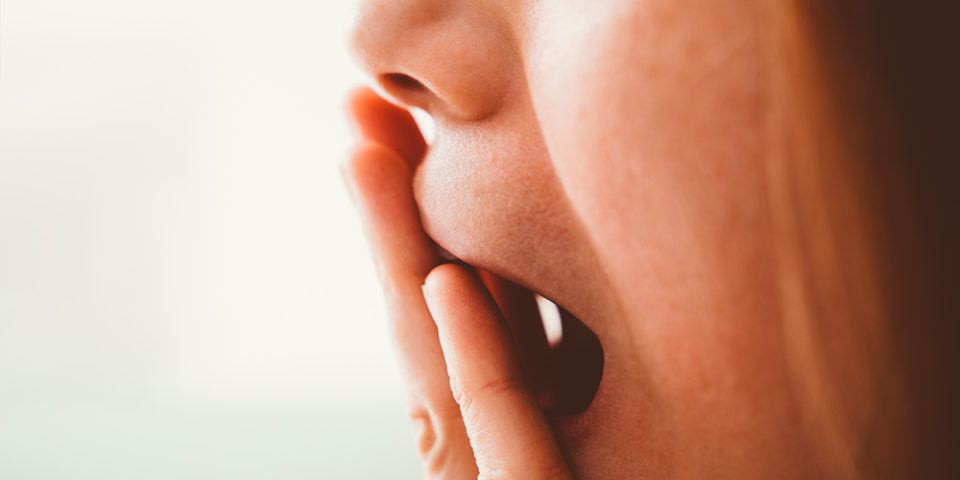How lack of sleep affects your weight
There’s a lot to love about the arrival of spring – flowers blooming, warmer days and nights, more time spent in the great outdoors. The “spring forward” of daylight saving’s time in March, though, can be a serious downside. Losing sleep, even if only an hour, can have more of an impact than we realize, especially on appetite and weight. Marilyn Meade Penrod, RN, explained how lack of sleep affects your weight.
Can lack of sleep cause overeating?
“There is a lot of scientific data on sleep and its effects on appetite,” said Penrod. “Sleep deprivation or poor-quality sleep alters the two hormones responsible for feelings of hunger, elevating that initial hungry feeling and suppressing the hormone that would help you recognize when you’re full. We are always learning more about how lack of sleep affects your weight.”
Lack of sleep can also make you more likely to default to a drive-thru or other foods that won’t provide the nutritional balance you need, leading to weight gain as the body attempts to compensate with increased cravings for quick-fix energy spikes like those from carbohydrates or caffeine.
What are some ways to improve my sleep?
“There are a few steps you can take to maximize the amount of sleep you can get, as well as making your time sleeping more relaxing and beneficial,” said Penrod. She offered a few tips based on suggestions from the National Sleep Foundation.
- Limit naps during the day to 30 minutes. Long naps don’t make up for poor quality nighttime sleep and can cause you to feel even worse during the late afternoon and evening.
- Avoid stimulants in the afternoon and evening. Used to having coffee after dinner? It might be time to cut down on your caffeine consumption. One trick is to make sure your last cup of coffee for the day is before 2 p.m., giving your body plenty of time to get the caffeine out of your system before bed.
- Don’t rely on depressants to fall asleep. While a nightcap cocktail may make you feel sleepy, it actually causes you to have less restful sleep and may make you more tired the following morning.
- Exercise regularly but keep an eye on the time. As little as ten minutes per day can drastically improve the quality of your sleep! Our bodies are made to move regularly, and yours will thank you for that walk after dinner or yoga class with a restful night. However, don’t exercise strenuously close to bedtime, as that can make it more difficult to fall asleep.
- Don’t eat within two hours of bedtime. It’s easy to have a quick snack at night, but we’re more likely to choose less nutritious options late in the day and digestion takes time.
- Put down your phone. It’s hard not to find yourself scrolling social media, checking your bank account and paying the bills or performing other tasks on your phone, tablet, or other electronic device just before or while in bed. The light given off by electronic devices, however, is a light our bodies read as a sign that it’s time to stay awake, so power down your devices two hours before bed for the best possible sleep.
- Avoid emotionally upsetting conversations. Any level of emotional upset can upend our body’s ability to calm and rest, as it may put us into “fight or flight” mode, with stress demanding wakefulness just as we most need to sleep.
- Practice deep breathing. For some, deep breathing and exercises that focus on progressive muscle relaxation can help! There are many apps available designed specifically around meditation or deep breathing to assist you with falling asleep or relaxing.
Make some changes to your bedtime environment and routine
“Establish a regular bedtime routine that’s really focused on ways to relax,” said Penrod. “This might include a nightly warm bath or shower, reading a book or listening to relaxing music.”
It’s also important to make sure your bedroom is a sleep-conducive environment. Keep the air cool (60-67 degrees Fahrenheit is often considered optimal for sleep) and make sure you have a comfortable mattress and pillows.
Some find using a white noise machine or even simply keeping a fan running helps them to drift off to sleep more quickly and restfully.
Still struggling? Consider a sleep study
“If you find that you’re doing everything you can, but you’re still consistently struggling with getting a good night’s sleep, speak to your doctor,” Penrod said. “Sleep apnea is a common cause of fatigue and poor sleep, and often goes undiagnosed and untreated for years – which can lead to serious health conditions down the road.”
The connection between sleep and weight management is strong and learning how lack of sleep affects your weight can help you make the right choices to get your best rest in the future. Taking care of your ability to fall asleep – and to get a good rest when you do – can help you stay healthy in every other aspect of your life, too.
Find the care you need, close to home
Our primary care physicians provide well visits and everyday care when you need it with compassion and expertise.
Find Primary Care Near You

